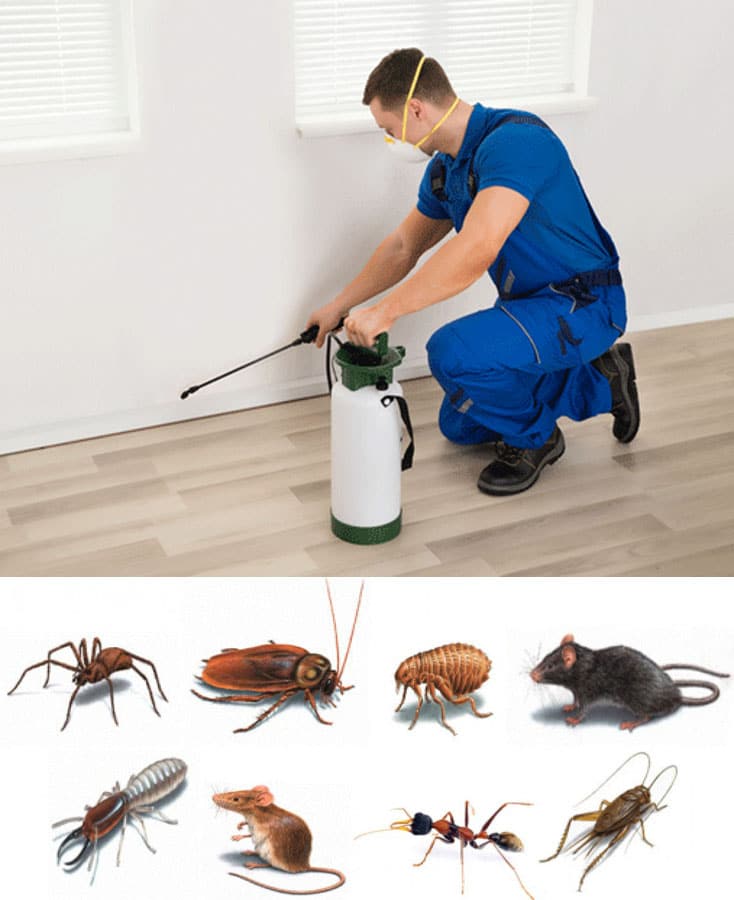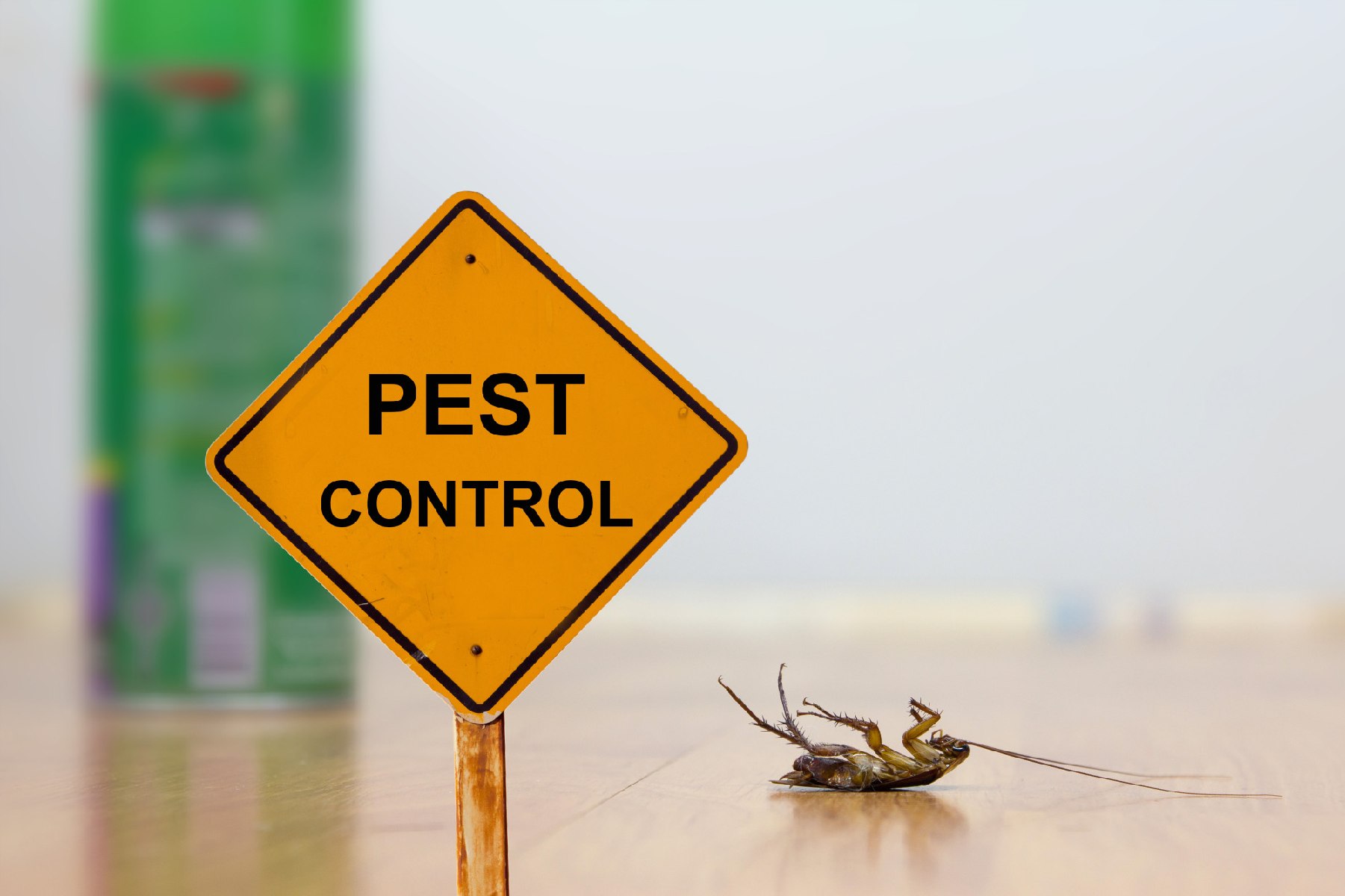Stop unwanted pests with professional Pest Control in Port Charlotte now.
Stop unwanted pests with professional Pest Control in Port Charlotte now.
Blog Article
Exploring Innovative Strategies and Products for Efficient Bug Control
The landscape of parasite control is developing, marked by the introduction of ingenious techniques and products developed to enhance effectiveness and sustainability. From smart traps equipped with sophisticated tracking systems to biological methods that utilize all-natural killers, these advancements present a standard change in just how we approach pest monitoring. Green chemical alternatives and scent interruption strategies offer targeted remedies that straighten with ecological stewardship. As the sector faces these advancements, a closer evaluation reveals not just their implications but additionally the prospective difficulties that may occur in their application.
Smart Traps and Monitoring Solutions
Exactly how can modern-day technology enhance parasite monitoring? One significant advancement is the development of smart traps and keeping track of systems, which supply real-time data and analytics for reliable bug control. These systems make use of sensors and cordless technology to spot pest task, alerting residential property supervisors and parasite control experts to invasions prior to they intensify.
Smart traps are outfitted with features such as bait stations that attract bugs and record them effectively. These catches can be monitored from another location, enabling timely treatments and minimizing the requirement for considerable chemical applications. The integration of machine learning formulas enables these systems to set apart between target insects and non-target varieties, improving the accuracy of parasite control actions.
Furthermore, the information gathered from smart catches can be evaluated to determine patterns in bug behavior and environmental aspects contributing to invasions (Pest Control in Port Charlotte). This information is vital for establishing targeted bug monitoring strategies customized to certain atmospheres. By welcoming clever traps and checking systems, bug control specialists can improve their functional effectiveness and decrease the eco-friendly influence of bug monitoring, inevitably causing safer and more sustainable methods in the industry
Biological Pest Control Methods
Using all-natural killers and bloodsuckers, biological insect control methods use an eco-friendly alternative to chemical therapies. This approach involves the introduction or enhancement of certain microorganisms that can naturally control insect populations, thereby reducing dependence on artificial chemicals. Typical instances consist of making use of ladybugs to control aphid infestations and parasitic wasps to target caterpillars.

Organic control can be classified into 3 primary techniques: timeless, augmentative, and conservation. Classic organic control includes importing natural adversaries from the parasite's indigenous environment, while augmentative control includes enhancing the populace of existing natural adversaries through releases. Preservation approaches concentrate on developing conditions that sustain these helpful microorganisms in the environment.
It commonly needs a detailed evaluation of parasite dynamics and the life cycles of both the pests and their all-natural enemies. As understanding of ecological issues browse around this site expands, biological bug control approaches are increasingly acknowledged for their sustainable role in incorporated insect management programs.
Eco-Friendly Chemical Alternatives
Environmentally friendly chemical alternatives supply a feasible remedy for parasite monitoring that decreases environmental impact while efficiently managing bug populations. These choices are stemmed from natural sources and are very carefully developed to target details insects without hurting valuable organisms, making them a vital part of lasting parasite control techniques.
Amongst the most efficient environmentally friendly options are plant-based pesticides, such as neem oil and pyrethrin, which are stemmed from the seeds and blossoms of different plants. These materials interfere with the life cycles of insects, decreasing their populaces without the harmful results connected with conventional chemicals - Pest Control in Port Charlotte. Additionally, essential oils like peppermint and clove oil show repellent residential properties, better boosting their energy in parasite management

In addition, green chemical choices commonly damage down faster in the environment, lowering the threat of dirt and water contamination. This particular aligns with the boosting consumer need for lasting techniques in farming and metropolitan insect control. As research study remains to development, the growth of cutting-edge green formulas will additionally boost effectiveness and widen application areas, enabling pest monitoring specialists to adopt greener, a lot more accountable approaches in their methods while guarding human wellness and the atmosphere.
Pheromone Disturbance Strategies
An additional innovative approach in sustainable insect monitoring is the usage of pheromone disruption techniques. These techniques exploit the natural chemical signals, or pheromones, that bugs use for interaction, specifically in breeding actions. By interfering with these signals, bug populaces can be successfully handled without resorting to hazardous chemicals.
Scent traps are commonly utilized in this technique. These catches make use of synthetic versions of insect pheromones to entice male insects, therefore lowering their capacity to locate females and duplicate. In time, this can bring about a substantial decline in parasite populaces. Furthermore, the release of repellent pheromones can create complication amongst bugs, better preventing their mating processes - Pest Control in Port Charlotte.

Integrated Parasite Administration Techniques
Effective bug control typically calls for a comprehensive technique, and Integrated Bug Management (IPM) strategies supply a framework for achieving this objective. IPM incorporates numerous management practices to lessen parasite populaces while minimizing dependence on chemical pesticides. This complex approach starts with thorough surveillance and recognition of insects, allowing for targeted treatments based upon details pest pressures.
Cultural techniques, such as crop rotation and hygiene, play a vital role in preventing insect establishment. Organic controls, including natural killers and parasitoids, are used to preserve parasite populations at manageable levels. When necessary, discerning chemical treatments are applied, emphasizing reduced poisoning to non-target varieties and the environment.
By utilizing this alternative technique, IPM not only enhances pest control performance yet also contributes to long-term ecological balance. Inevitably, Integrated Parasite Management represents a forward-thinking solution that lines up agricultural performance with ecological stewardship, making it necessary in modern insect control approaches.

Conclusion
To conclude, the assimilation of cutting-edge techniques and items for effective parasite control represents Full Report a substantial improvement in lasting bug management. Smart traps and monitoring systems, organic pest control approaches, environmentally friendly chemical options, and pheromone disturbance methods jointly improve the efficiency of parasite management techniques. By adopting these methods, the dependence on traditional pesticides can be minimized, advertising ecological health and wellness while making certain effective pest control. Proceeded r & d in these areas will additionally enhance bug monitoring methods.
Report this page